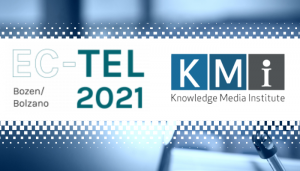News Story
Investigating Learning Technology for Equality, Diversity and Inclusion
Friday 17 Sep 2021
Milton Keynes, UK: Along with other colleagues at the OU, Ruhr-Universitaet Bochum in Germany, Carnegie Mellon University in the USA, EPFL in Switzerland and Diversync Limited in the UK, KMi will be hosting a workshop at the annual European Conference on Technology Enhanced Learning (EC-TEL) on the subject of learning technologies for Equality, Diversity and Inclusion (EDI). The workshop, entitled: “Designing Learning Technologies for Equality, Diversity and Inclusion”, will address issues such as normativity in understanding learning experiences, the impacts and utility of learning technology for students belonging to ethnic or cultural minorities, the intersection of multiple identities in learning environments, accessibility, fairness and equity in learning technology, and how to involve learners directly in the development of learning technology and evaluating its impact. The purpose of the workshop is to foster critical educational research and reflection, for the next generation of learning technology, researchers and practitioners.
KMi staff are currently running an eSTEeM project within The Open University that addresses these topics within the context of learning analytics. More specifically, we’re investigating how learning analytics can help to shed light on issues like retention and the degree awarding gap for students who are Black, Asian or who have another minority ethnic background. We’ll be examining the extent to which learning analytics reflects the normative experience of the student body, and the steps we can take to ensure that the data we can gather through learning analytics will be relevant to other student demographic groups as well as those falling into the majority demographic of White, British students. For this project, we’ll be working to disaggregate some of the patterns we can observe with our award-winning learning analytics platform OUAnalyse by demographic group, and to work with students on how these patterns can be best interpreted to support learners. Our early results, conducted on a variety of different configurations of existing LA predictive models, show that creating individual models for subgroups of students within specific protected attributes (ethnicity, gender, disability) do harm the accuracy and fairness of the predictions. On the other hand, removing the protected attributes from model training helps to enhance the fairness of these models for some subgroups. We plan to share some of the early results of this project at the workshop.
Call for Action
We are hoping this workshop brings insight into different challenges that are faced by students from different backgrounds and how technology can support (or harm) learners. If you have research you would like to share, we encourage you to participate in our workshop. Details for how to take part can be found on our event website.
Important dates
July 14th: Submission deadline for applications/submissions
August 1st: Send out notifications of acceptance
September 20th – 21st: Workshops are held online
Latest News
The Open University at The Royal Society Summer Science Exhibition 2019
OU Vice-Chancellor visits KMi: A showcase of Innovation and Impact
Explainable AI study on Education Equity awarded Best Paper at ICAITE 2025
ClimateSense team wins top places in two international misinformation challenges
Assessing the Impact of Artificial Intelligence on the Gender Pay Gap

